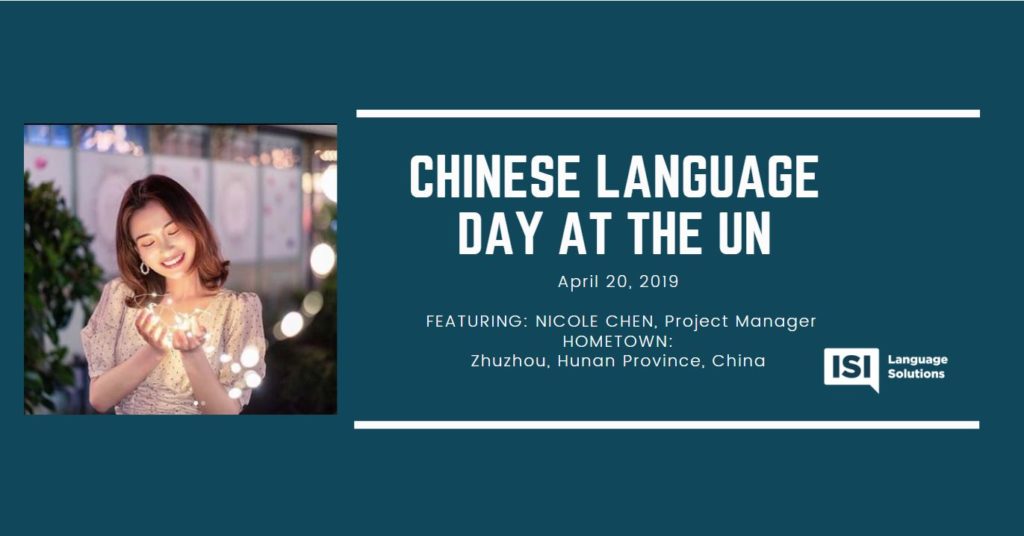Tomorrow is Chinese Language Day at the UN. We sat down with Nicole Chen, one of our project managers, to discuss the Chinese language and what makes it unique.
Nicole: First off, I think it is important to note that referring to Chinese as one language can be deceiving due to the diversity of dialects within China. While Mandarin and Cantonese are the most commonly spoken dialects there are an additional 5 dialects and over 130 languages spoken. Interestingly enough, Chinese dialects evolved based upon geographic isolation. In mountainous areas, where villages were historically isolated, there is a greater diversity of languages.
What is your favorite word in Chinese? Why?
Nicole: 聪 cōng
This word means smart. This Chinese word is combined with four Chinese words meaning ear, eye, mouth, and heart. If you want to be smart you need to listen, observe, speak, and learn by heart.
It is a word that shows the beauty and wisdom of the Chinese language.
Do you have a favorite saying in Chinese?
Nicole: Yes.
xué rú nì shuǐ háng zhōu ,bú jìn zé tuì
学 如 逆 水 行 舟, 不 进 则 退
To study is like sailing against the current; either you keep forging ahead or you will be driven back.
Was it difficult to switch from symbols to characters in learning English?
Nicole: The beginning is always the hardest. But there is a common element between Mandarin Chinese and English. People in mainland China use Hanyu Pinyin, the official romanization system, to learn Chinese. When I started learning English, I borrowed Pinyin to help me remember the pronunciation of English words. Once you understand the rule of English language combination, it is easier to learn it. And then you face an even more difficult challenge, learning the English culture.
Is there anything else we may need to know?
Nicole: Mandarin Chinese is a tonal language with four main tones. Even for the same Chinese word, it can also have several tones. The change of tones can change the meaning of the word.
For example:
rén yào shì xíng, gàn yī háng xíng yī háng ,yī háng xíng háng háng xíng。
人 要 是 行, 干 一 行 行 一 行, 一 行 行 行 行 行。
Meaning: A person with great ability excels at every work they do.
Navigating the world of languages that may be foreign to you can be challenging. Having a partner that understands the subtleties inherent in any culture is key to success. ISI Language Solutions has been helping our clients reach Non-English target markets for over 36 years. We would love to help you.
Contact us today at [email protected]








